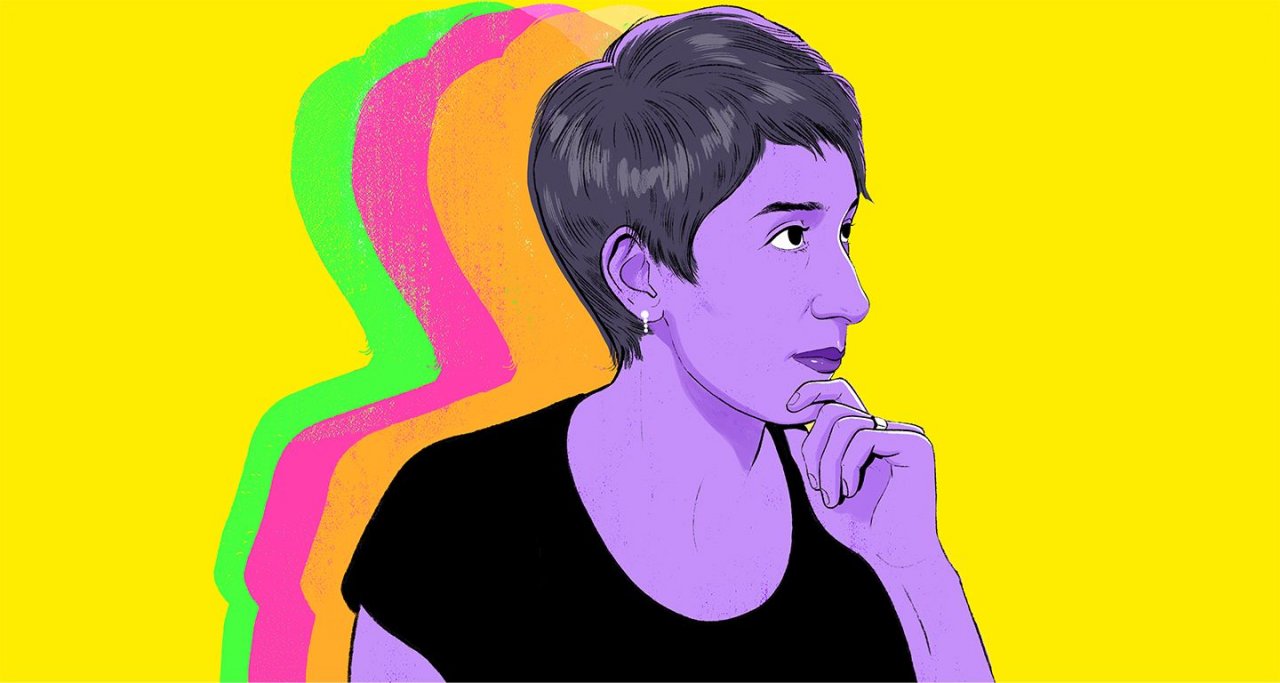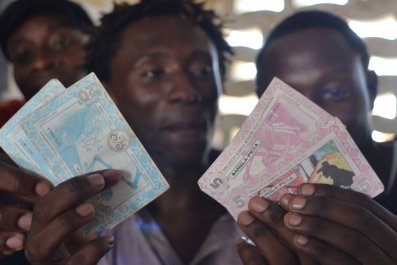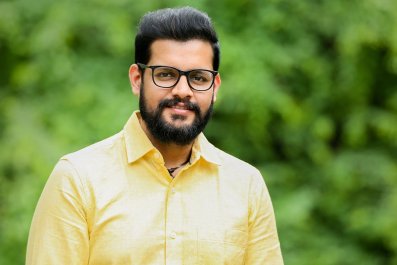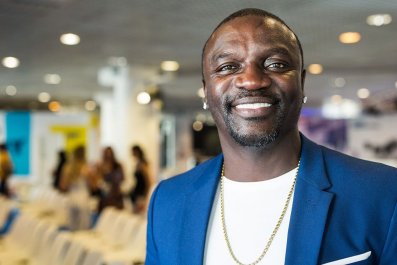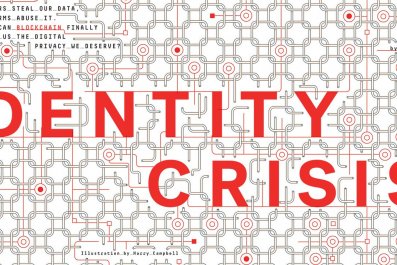A white man walks into a bar. Perhaps he's wearing a "Make America great again" cap or a Red Sox T-shirt or a crucifix. Maybe he has a tattoo sleeve or a nose ring or a yarmulke. Whatever the signifiers, you consciously, or subconsciously, have decided he is one of Us or one of Them.
According to researchers humans are hard-wired for tribalism. Labeling is biological. Minorities have put up with it since America's founding, of course, but, as Irshad Manji argues in her new book, Don't Label Me (St. Martin's), the "loathed white guy" isn't the only one stuffing others into boxes now. Everyone is at it, even those who, like Manji, champion diversity. "Well before Trump," says the author, "so-called progressives were labeling swaths of Americans as racists and rednecks." A lot of those people, she adds, "support Trump—as payback."
Manji is well-situated to argue for what she calls honest diversity. An Oprah award winner and founder of the Moral Courage Project, she has struggled with tagging all her life: a refugee from Africa; a Muslim who happens to be gay; an advocate for liberal Islam and a vocal critic of mainstream interpretations (as in her best-selling book The Trouble With Islam Today ). But three decades of debating people ensconced in rigid identity; of coaching others to exercise moral courage ("doing the right thing in the face of your fears"); of the escalating tribalism exposed by the election of President Trump—all of it made her despair. "Wanting a divorce from my species," Manji writes in Don't Label Me, "I slumped into pessimism."
A blind and aging rescue dog named Lily—Manji's "mentor and tormentor"—offered her a way out. The book is an imaginary conversation between them, resulting in a passionate, playful and persuasive argument for rejecting dishonest diversity—the categorizing that fixates on biology (white, black, male, female, LGBT, straight, etc.)—and its attendant and unforgiving call-out culture "where asking the wrong question gets you slammed. If derelict systems will ever evolve," she writes, "people have to risk giving offense."
Or as Chris Rock, a Manji fan, put it, "Right now, I'd like to say something biting and controversial but I'm too scared of the backlash it could create. That's why we need this book. Because nobody should be afraid to speak their mind, not even stupid people like me."
Manji spoke with Newsweek about the rise of shaming on the left, and choosing honest over dishonest diversity.
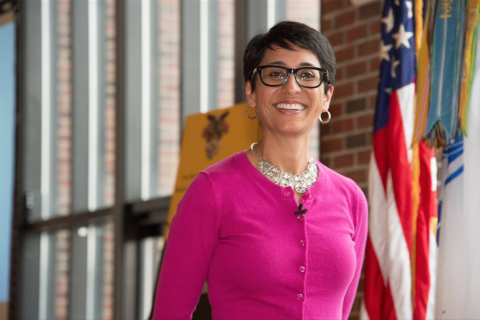
How did Don't Label Me happen?
For most of my life, I've been treated as a poster child for multiculturalism, so every day I observe how diversity gets practiced. And increasingly it's practiced as labeling. All this pigeon-holing worries me because it's just the flip side of what the early American colonists did. They stuck individuals into groups, categorized those groups into a hierarchy, and then assigned a certain worth to each. Does reviving that mindset really amount to progress?
Why did you go the route of a conversation with your dog Lily?
First and foremost, because I grew up deathly afraid of dogs. When I finally faced my fear by adopting Lily, I realized that there was no valid reason for my anxiety. My fear was begging to be overcome—as it is when we fear "others" of any kind.
As Lily and I bonded, I'd speak with her about my disillusionment with human beings. She'd often tilt her head as if to ask me what the hell I was I talking about, which would slow me down to contemplate, even challenge, what I was saying. This is exactly what more of us need to do in our reactionary political climate.
It dawned on me to make this my approach in the book: Let Lily be my mentor and tormentor. And trust me, she was both. [Laughs.] Ms. Lil had a fiercely independent mind. She'd stick her nose right into the wind and ignore my calls to follow me. Yet another reminder that labels, including "old" and "blind," never accurately capture anyone.

Culture, increasingly, strikes me as a simply another form of indoctrination.
They really are the same thing. And that leads to the whole issue of multiculturalism, and preserving and protecting cultures. Is that the way, really, to a pluralistic future? And I would say no, because culture equals conditioning, which is why we so rarely even know to question it, let alone begin to question it. It's just the way things are. But if we swallow that uncritically, then what opportunities are we missing? Cultures are not sacred; they are human-made, not God-made.
One thing I've learned is that the toughest kind of change is cultural change: Customs and traditions die hard. Hence the ongoing forms of segregation. I'm not trying to change anyone with Don't Label Me, and I'm not asking anyone to overthink anything. I am asking a genuine question: That we take a few minutes to stop and reflect and ask ourselves not "Am I happy with myself?" but "Am I happy with us?"
The current news cycle is filled with shaming and blaming, on every side. Trump and the Democrats. Representative Ilhan Omar and Israel. Virginia politicians and blackface. Liam Neeson! What are you seeing here, and how can we move beyond criticism to constructive change?
Different situations call for different responses. But shaming should never be the first response because it only leads to blowback. Shaming degrades the shamed. You rarely change minds that way; more often, you instill a level of resentment that incites retaliation.
If the social gains we've made are to endure, they need buy-in from those who disagree with us. This means seeking common ground, even as we stand our ground. That's where listening to opposing points of views comes in—and asking sincere questions. Why does my opponent believe what she believes? What experiences brought her there? By listening, you're working with a basic law of human psychology: that if you want to be heard, you first have to hear.
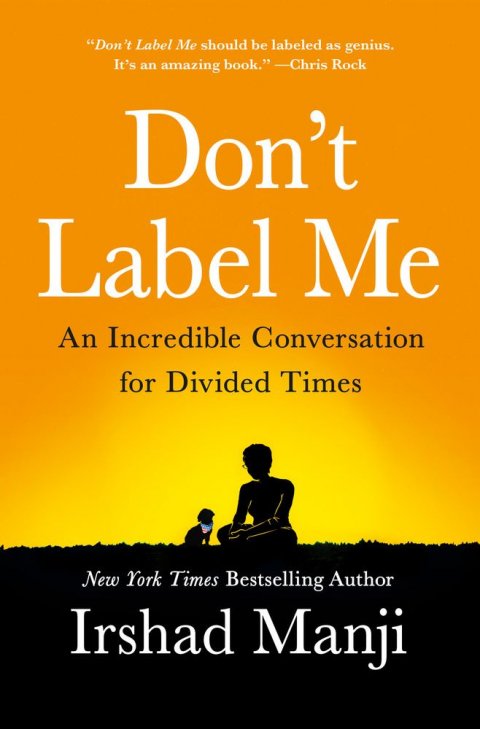
I'm sure you've thought about a recent incident that went viral: the video of a young white man, from Covington Catholic High School in Kentucky, who was seemingly confronting a Native American activist. As it turned out, it was just a moment in a much larger incident in which everybody deserves some blame. But before the context was revealed, progressives thoroughly humiliated the boy on social media.
It was utterly textbook: humans being played by our biology, or, more precisely, choosing to cave to our biology. Having learned that our brains can manipulate us, I've developed a measure of compassion for our species. In the book, I tell Lily that she dodged a bullet by being created a dog. [Laughs.] But I can't excuse the social media pile-ons. It's still a choice we're making to label someone, in this case the Covington student, as a stand-in for racism rather than regarding him as an individual whose story we don't yet know. And to make that choice based on his skin color, or gender, or hat—what a self-defeating way to fight for diversity.
You make the point that dishonest diversity belittles white people.
I've watched it happen time and again. For example, after taking a book tour in the Midwest, I returned to New York and spoke with a university colleague about what my readers in the heartland asked. He didn't want to know about their questions; he just wanted to know how often I encountered Islamophobia. Not whether, but how often . He assumed that he was being pro-diversity by depicting Midwesterners—read: white folks—as Islamophobes. To his credit, when I explained what a disservice he'd done to diversity, he copped to his prejudice.
In the book you write of two young African-American men who felt alienated by the Black Lives Matter movement because they were interested in having a conversation with the police, to get their perspective on race-based brutality. Their idea was shot down by a local leader, who considered engaging with police a betrayal of their black community.
There are plenty of activists in the BLM movement who welcome dialogue with white people. But others have begun critiquing Martin Luther King Jr. for doing exactly that. He went the respectable route, they tell me, and look where it got him.
I disagree. The moral authority of the movement came from the fact that Dr. King and his fellow activists were respectful, which is different from respectable. Dr. King was hardly respectable; he was hated in his time.
I also disagree that the civil rights movement didn't go far enough. Dr. King's message got it precisely right: He trained activists to treat every person not as an "it," but as "us." Judge people by the content of their character and not the color of skin. Because of the movement's moral authority, that message eventually caught on. And until recently, it had such widespread traction that many white people felt betrayed and scammed as more and more social activists deployed anti-white rhetoric. The unspoken question, I think, was this: "If I'm going to be judged simply for the color of my skin, then why should I care about the content of my president's character?"
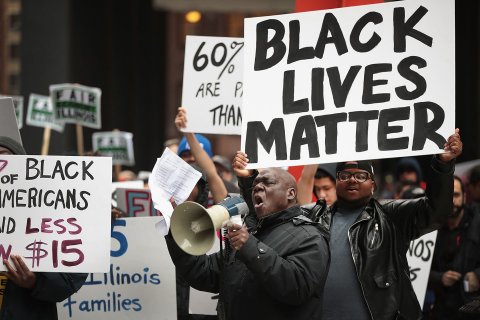
You aren't the first to say that technology is exacerbating division and maniacal behavior, but, as you say, the onus is on us.
What I want to point out is that the maniacs reside in us, not outside of us or in our devices. Sure, tech companies employ armies of designers and engineers to dissuade us from thinking through our emotions; they tweak algorithms so that we're first fed only the content that matches our biases. That's manipulation from the moment we log on. But what they're taking advantage of is our unwillingness, as conscious individuals, to move beyond the easy-peasy pleasures. Research shows that if you're surrounded by like-minded people who validate your opinions, you'll feel the chemical high of victory—a fleeting high that you'll want more of. What an impetus to wall yourself off, take refuge in your chest-thumping tribe and defeat those who threaten its truths.
Notice I'm not saying we have to delete our social media accounts. Just don't subdue your mind when you're logged on. As Lily reminds me in the book, I'm not Twitter's bitch. [Laughs.]
You encourage asking questions, lots of them, but doesn't that also open people up to being labeled as racist, ignorant or dangerous?
When I work with young people of color, there are no shortage who say to me, "But I don't want people asking me questions about my life. It's not my job to educate them." And I say, "Are you wanting change?" Yeah, of course, they say. "Well, then it is your job to educate." It really is. You cannot get people to relate if all you're going to do is berate.
Thus the need for more listening. But how do you tell a generation raised with a phone in their hand to put down their devices and have a face-to-face conversation?
I don't tell them. [Laughs.] That would only heighten emotional defenses, and emotions play a much bigger role in decision-making than most of us care to admit. Instead, I ask how social media makes them feel. It's also healthy to help young people to understand that they're being toyed with and tracked 24-7 by tech companies. I'd ask, "Is that creepy or are you okay with it? Help me understand where you are coming from." As the aunt of a 12-, 10-, and 8-year-old who cherish their screen time, I'm under no illusion that young people will become device defiant. But I guarantee that your questions will make them think later on.
People will always disagree; human nature will see to that. But we're also capable of taking disagreement as an invitation to engagement. Many schools today teach how not to be offensive; equally, they should also teach students how not to be offended, so conversations can begin.
If I'm asking too much of humans, it's because asking too little is worse.
Don't Label Me: An Incredible Conversation for Divided Times (St. Martin's) will be published February 26, and is available here.



